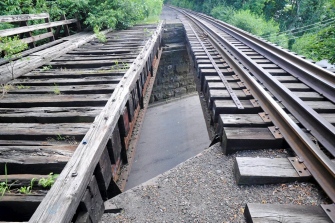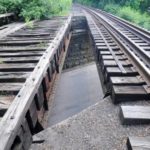In metropolitan areas like Maryland, Virginia, and Washington, DC, public transportation provides an invaluable service. Although convenient, commuter trains can present multiple hazards that most passengers probably don’t even think about. Operators and owners of commuter trains have a duty of care to provide safe passage for those who use them. If injuries or deaths occur in a train derailment accident, they could be held liable.
Who is liable for my train derailment injuries?
When you are injured in a train derailment, especially one caused by the negligence of someone who should have known better, the law entitles you to compensation to offset your medical expenses, wage loss, and any modifications or long-term care you may need. The experienced Virginia train accident attorneys at Shapiro, Washburn & Sharp can help you seek financial compensation if you were injured in a commuter train derailment.
What Is a Train Derailment?
A train derailment is exactly what it sounds like; a train leaving the tracks (rails). Based on the cause of the derailment, they can vary in intensity from insignificant to catastrophic.
During a minor derailment, the train may slip off the rails without completely leaving the tracks. These accidents tend to lead to transportation delays and minimal, if any, injuries. A metro derailment that took place in 2021 caused injuries of no real significance to those on board but it does underscore how even a minor derailment can be scary and traumatic for those who experience it.
In a serious derailment, the train may come off the track entirely, causing it to roll, tip, and otherwise crash resulting in severe injuries and even passenger deaths. Train derailments, like the Metro derailment in 2009 in which nine people lost their lives, are a prime example of how a seemingly average commute can turn deadly when those in charge are negligent.
Common Causes of Train Derailments
Trains are designed to run smoothly along their tracks, but, sadly, this smooth ride can be interrupted leading to a catastrophic disaster.
Trains can be derailed for numerous reasons, such as:
- Speeding
- Broken or misaligned rails
- Conductor or staff negligence
- Accidents
- Sharp curves or turns
- Defective or faulty parts
While a lot of old wives’ tales about derailments have been discredited over the years (putting a penny on the tracks will not derail a train) derailment accidents are still fairly commonplace. A report published by the Bureau of Transportation Statistics reported that a total of 1,056 passenger and freight train derailments took place in 2021. Although not every train derailment ends in injuries and death, when a major derailment happens, you will want the advice and guidance of an experienced lawyer who can help you recover the financial compensation you are entitled to.
Common Types of Derailment Injuries
Although they are not always serious, train derailments often cause injuries. Generally, derailments have more injuries and more casualties due to the number of people on the train. Traveling at speeds of up to 50 miles per hour, the consequences of major train derailment are often devastating to riders.
Some of the most common train derailment injuries are:
- Fractured or broken bones
- Traumatic amputation
- Spinal cord injuries
- Traumatic brain injuries
- Internal organ damage/Internal bleeding
It is crucial that you seek immediate medical care after a train derailment, even if you feel unharmed. Similar to other types of motor vehicle accidents, it can take days or even weeks for symptoms of your injuries to manifest. You could also sustain internal injuries that go completely unnoticed until they have worsened considerably. After you receive a formal diagnosis of all of your injuries, your train derailment lawyer can calculate your damages and give you an estimated value of your claim.
Speak With an Experienced Train Derailment Attorney
If you sustained injuries in a train derailment accident, schedule your free case review as soon as possible by calling our Virginia personal injury law firm at (833) 997-1774 or using the contact form on our website.

